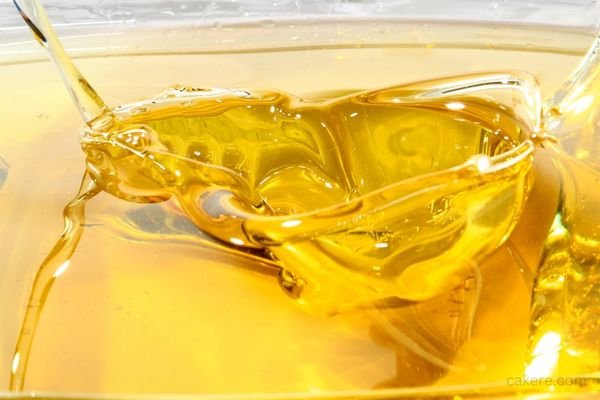Have you ever wondered why baking recipes call for oil? What does cooking oil do in baking? While it may seem like an insignificant ingredient, cooking oil plays a crucial role in the outcome of your baked goods. Oil affects the texture, flavor, and shelf life of your baked creations.
In this article, we will explore the role of cooking oil in baking. We will discuss the different types of oils and their best uses in baking. We will also answer some common questions about cooking oil and provide tips for using it in your baking.

What Does Cooking Oil Do in Baking? Understanding the Role of Oil:
- Provides Moisture: One of the primary roles of cooking oil in baking is to provide moisture. Oil helps to keep baked goods moist and tender. Without oil, baked goods can become dry and tough.
- Improves Texture: Oil can also improve the texture of baked goods. Oil helps to create a soft, tender crumb in cakes and muffins. It can also help to create a crispy texture in cookies and pastries.
- Enhances Flavor: Cooking oil can enhance the flavor of baked goods. Depending on the type of oil used, it can add a subtle flavor to your baked creations. For example, coconut oil can add a tropical flavor to baked goods, while olive oil can add a savory flavor.
- Increases Shelf Life: Finally, cooking oil can help to increase the shelf life of baked goods. Oil helps to keep baked goods moist, which can extend their shelf life. This is especially important for items like bread and muffins, which can become stale quickly.
Types of Cooking Oil and Their Best Uses in Baking:
- Vegetable Oil: Vegetable oil is a neutral-flavored oil that is commonly used in baking. It is versatile and can be used in a variety of baked goods, including cakes, muffins, and quick breads.
- Canola Oil: Canola oil is another neutral-flavored oil that is a popular choice for baking. It is low in saturated fat and high in monounsaturated fat, making it a healthier option than some other oils.
- Coconut Oil: Coconut oil is a popular oil for baking because of its subtle, tropical flavor. It is solid at room temperature, so it is often used in recipes that call for a solid fat, like butter.
- Olive Oil: Olive oil is a flavorful oil that is best used in savory baked goods, like bread and crackers. It can also be used in some sweet baked goods, like olive oil cake.
FAQs
Yes, you can substitute butter for oil in baking. However, keep in mind that butter has a different texture and flavor than oil, so it may affect the outcome of your baked goods.
It is not recommended to use expired cooking oil in baking. Expired oil can become rancid and affect the flavor of your baked goods.
Yes, you can use flavored oil in baking. Just be sure to choose an oil that complements the flavors in your baked goods.
Conclusion
Cooking oil plays a vital role in the outcome of your baked goods. It affects the texture, flavor, and shelf life of your creations.
